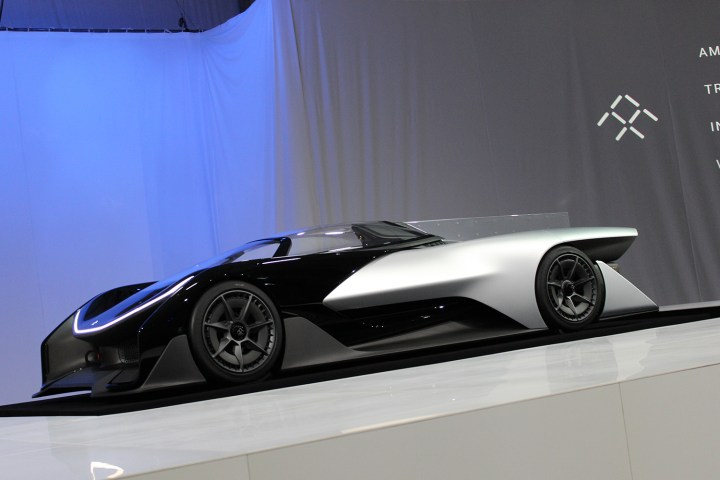
Faraday announced this week that it received its first U.S. patent for the “FF Echelon Inverter,” a power inverter the company claims is superior to the competition’s components. This may be the first of many patents for Faraday, as it’s applied for about 100 over the past year.
The FF Echelon Inverter doesn’t use any off-the-shelf parts, Faraday says, and has a lower number of individual components. Faraday also claims its inverter has 30 percent greater power density than anything else currently available, and is cheaper to make. The inverter was also designed to reduce the chances of an electric current being inadvertently shared across parallel components, which should decrease the likelihood of powertrain issues.
However, we still don’t know much about the car (or cars) that will use this part. Faraday’s first production model probably won’t resemble the FFZERO1 supercar concept the company unveiled at CES, although it may use the same layout, with a battery pack mounted between the axles. Faraday executives have hinted that the company’s vehicles will be geared more toward car sharing than traditional individual ownership.
In its bid to land Faraday’s electric-car factory, Nevada promised $215 million in tax abatements, and $120 million in infrastructure improvements to the area around the site, the latter done in the hope that other businesses would be attracted to the area as well. But lawmakers subsequently asked Faraday to put up $75 million in collateral, to prove it actually has cash to invest as well. The company says it can cover that amount.
The lawmakers’ reticence isn’t unreasonable, as automotive startups have a pretty poor track record. Faraday, however, is backed by Chinese business magnate Jia Yueting and his LeTV company (which now has ties to Aston Martin), which is likely one of the reasons why people are taking its ambitious plans seriously. But only time will tell if Faraday becomes the next Tesla, or the next DeLorean.


